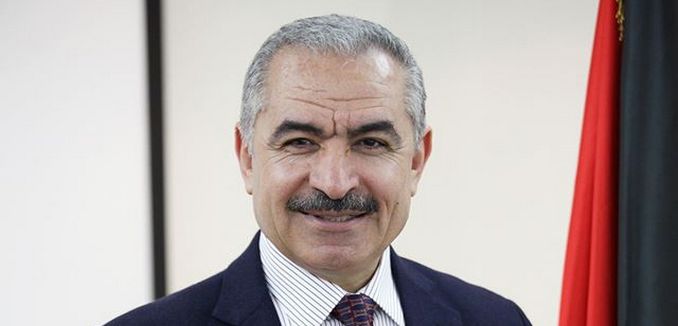By appointing longtime adviser, Mohammad Shtayyeh, as the Palestinian Authority’s new prime minister, President Mahmoud Abbas has given the bureaucrat the “inside track” to succeed him, according to an analysis published Wednesday by David May, a research analyst at the Foundation for Defense of Democracies.
It will be up to Shtayyeh to form a new government to succeed the one formed by Rami Hamdallah, who resigned in January.
In addition to being an adviser to Abbas, Shtayyeh has been a negotiator with Israel. He was a senior member of the Palestinian team during the 1991 Madrid talks and in the talks presided over by then-United States Secretary of State John Kerry in 2013 and 2014. He has held both governmental and academic positions in the economic sphere.
According to May, the appointment of Shtayyeh may be most significant with respect to the “looming Palestinian succession crisis.”
He explained, “Abbas is 83 years old, reportedly in poor health, and is currently serving year 15 of a four-year term.” Despite this, Abbas has refused to name a successor for fear of setting off a power struggle.
Shtayyeh appears to be a more pragmatic choice to succeed Abbas than other PA figures who have been mentioned as possible successors, May wrote. Jibril Rajoub is the secretary general of Fatah’s Central Committee, but he also has threatened to nuke Israel and has worked to isolate Israel in the world of sports. Mohammad Dahlan is living in exile but is accused of torture and has been blamed for failing to prevent Hamas from taking over Gaza in 2007. Marwan Barghouti, who is frequently cited as the most popular Palestinian politician, is serving a life sentence in an Israeli prison for multiple terrorist murders.
May noted that just as Abbas served as Yasser Arafat’s prime minister before being elected as president of the PA, Shtayyeh’s appointment could give him “an inside track to become the next president.” Though the prime minister of the PA is “largely powerless,” May suggests that “Shtayyeh’s experience and capabilities could elevate the position.”
In a less positive assessment of Shtayyeh, Pinchas Inbari wrote for the Jerusalem Center for Public Affairs that Shtayyeh is both a proponent of the anti-Israel Boycott, Divestment, and Sanctions (BDS) campaign and has been opposed to security cooperation with Israel.
Based on public statements and other information, Inbari, a longtime Palestinian affairs correspondent, understands that Shtayyeh is looking to create a government without a strong presence of Fatah, the main Palestinian political party. The lack of a Fatah presence in the PA government could mean “that after the demise of Mahmoud Abbas, the ‘private sector,’ meaning the business community, will take the reins of power rather than Fatah,” Inbari wrote.
Whether or not Shtayyeh’s appointment will make much of a difference in the short term remains unclear. Nabil Abu Rudeineh, a close aide to Abbas, told Agence France-Presse, “The government has never been the policymaker here. The PLO is the only side that has to make decisions.” The PLO is run by Abbas.
[Photo: Montaser.pal / WikiCommons ]




